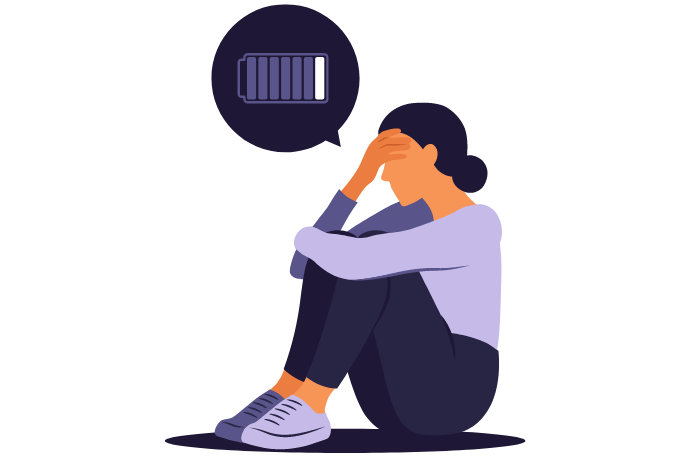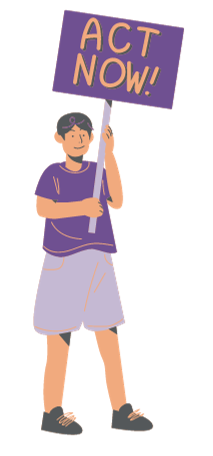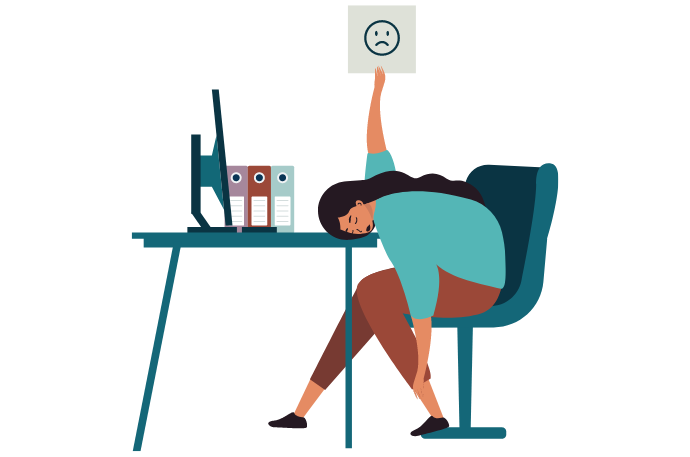What Arts, Culture, and Heritage Workers Can Do in the Face of International Events
If you are feeling helpless or overwhelmed by the scope and scale of human tragedy, you are not alone –
here are some resources and strategies for caring for yourself and taking action.
It is easy to feel helpless in the face of international crises.
In the past month alone, we have seen targeted violence against civilians and the deadliest war in nearly two decades in Israel and Palestine, more than 1.4 million Palestinians displaced, genocide against Armenians in the Nagorno-Karabakh region, shootings in the United States, millions displaced by war in Sudan, anti-Trans protests across Canada, climate deaths in Mexico, warnings that climate change is leading towards an extinction-level event, ongoing war and human rights violations in Ukraine, and the list seemingly goes on and on and on. From finding new ways to support yourself and your staff and volunteers, to contacting your elected officials, there are concrete ways to turn anguish into action to support your community and communities around the world.
Self-Care
In stressful situations, self-care can be an afterthought, but to ensure that you, your team, and your institution can support your community, you must prioritize self-care. Self-care can be more than deep breathing exercises, yoga and getting a good night’s sleep. Self-care is taking care of yourself and your staff for long-term health and well-being. Self-care can look different for each person, and so it is important to ensure that everyone is getting the support and care they need both within and outside of work. The BCMA curates a directory of mental health and wellness resources, you can find them on our website.
Self-care and caring for others isn’t something that many arts, culture, and heritage workers are trained to do. The Red Cross offers affordable online psychological first aid training, focused on supporting yourself and supporting others. At $20 per course, this training can be effective for both managers who want to better support their teams and volunteers, and for individuals who want to learn strategies for dealing with stress, loss, and trauma.
If you, or someone in your life, needs more immediate access to help, Crisis Centre BC operates a 24/7 crisis hotline and chat services for those in distress. They also offer training for both adults and youth. To contact Crisis Centre BC:
- Anywhere in BC: 1-800-784-2433
- Mental Health Support Line: 310-6789
- Seniors Distress Line: 604-872-1234
- Online Chat Service for Youth: www.YouthInBC.com (Noon to 1 am)
- Online Chat Service for Adults: www.CrisisCentreChat.ca (Noon to 1 am)
For racialized and historically marginalized communities, global events can feel even more overwhelming. An individual who has come to Canada as a refugee or has family who came here as refugees, for example, may find the current forced evacuation of Palestine a triggering reminder of personal trauma. For 2SLGBTQIA+ individuals, knowing that anti-Trans protests are happening in their or nearby communities may make them feel especially unsafe working with the public. It is important to review your organization’s policies to include guidelines for stress leave and how unsafe situations are handled within your organization.
It is especially important to not place additional emotional labour on staff who are struggling with the psychological weight of events. Not only may these team members be worrying about the well-being of their friends and family, but being asked to develop programs or public responses to international events may put them in a difficult position with their community. If you are unsure if someone is overloaded, ask them. Open and compassionate communication is essential to fostering a supportive organization in which people can bring their whole selves to work.
 Burnout is real and can take years to recover from. Stress from international events can magnify feelings of burnout from people who are already overloaded in their workplaces. The Cleveland Medical Clinic recommends looking for the following signs of burnout in yourself and others to inform next steps in your organization:
Burnout is real and can take years to recover from. Stress from international events can magnify feelings of burnout from people who are already overloaded in their workplaces. The Cleveland Medical Clinic recommends looking for the following signs of burnout in yourself and others to inform next steps in your organization:
- Fatigue
- Feeling apathetic or dissatisfied with your work
- Headaches
- Changes to diet or sleep patterns
Advocacy Canada has a resource for supporting 2SLGBTQIA+ employees during anti-Trans protests and many of these strategies are useful to consider for a wide variety of equity-deserving groups.
Connecting With Your Community
Museums, galleries, and heritage sites often bring communities together around difficult events. Recently, hundreds attended a protest outside the Vancouver Art Gallery to call for a ceasefire in Gaza. In 2021, in response to the confirmation of unmarked graves across the country, hundreds came together outside the Royal BC Museum to create a memorial. As was discussed in our 2022 webinar, Soup-Slinging Syrup Showdowns, whether your institution plans to be or not, museums, galleries, and heritage sites are common sites for protests and community gatherings.
Instead of reacting to protests and gatherings, you could consider reaching out to community organizers to see how your site can support them. By proactively connecting with communities, you can take steps to develop meaningful relationships of trust and respect. The Royal Ontario Museum’s recent attempt to modify the content of its Death: Life’s Greatest Mystery exhibit without the artists who contributed to the exhibit’s consent, led to an 18-hour sit-in starting on October 28, and damaged its relationship with the Palestinian-Canadian community. If a museum does not honestly and authentically engage with its communities, it will create or even reinforce divides between the museum and its community.
Candid Actionable Reconciliation Education (CARE) for Museums
A collection of resources that aim to connect museums with the knowledge and ideas they need to make meaningful steps towards reconciliation and decolonization while being mindful of the time and capacity of Indigenous communities and knowledge holders.
At the same time, we have seen examples of protests that have threatened museum and gallery staff/volunteers, from small-town anti-public health order protests in 2021 to museums located next to anti-Trans protests. If your organization is a common protest site (or near a common protest site) in your community, it is important to develop a safety plan for your staff/volunteers to mitigate potential dangers and prepare everyone in your institution to be equipped to respond. In 2024 the BCMA hopes to develop and share new safety planning resources with our members to help with this work.
Taking Action
 In a world increasingly choked with online mis- and disinformation, it can be hard to determine what information is true and what actions you can take to make a difference. Here is an overview of how arts, culture, and heritage professionals and organizations in Canada are taking action.
In a world increasingly choked with online mis- and disinformation, it can be hard to determine what information is true and what actions you can take to make a difference. Here is an overview of how arts, culture, and heritage professionals and organizations in Canada are taking action.
Petitions
There are a lot of different online petitions requesting a ceasefire in Gaza. While signing a petition can feel like doing something, a lot of petitions fail to make a significant impact because they are not effectively directed to decision-makers in government. Petition e-4649 is currently collecting signatures and will be sent to the Prime Minister requesting that Canada demand an immediate ceasefire in the Israel-Palestine conflict.
In addition to directing petitions to decision-makers, aligning yourself with many voices or an entire sector can magnify your impact. Recently, 4000+ arts, culture, and heritage workers, volunteers, and organizations have signed a letter denouncing colonial violence in Palestine. To learn more about this letter, its requests, and the organizations that have signed it, visit this comprehensive overview on HyperAllergic.
Donations
Palestine Children’s Relief Fund (PCRF) provides water, medical, and formula relief. Doctors Without Borders and the UN High Commissioner for Refugees are both currently accepting donations for Sudanese refugees.
In addition to supporting causes that are actively in the news, it is good to check in on organizations that are still working to support recovery from recent disasters as funding tends to drop off quickly once events are no longer in the news. An example of this is the Lahaina Restoration Foundation, an organization working to support the recovery of historic homes and businesses lost in the 2023 Maui wildfires.
The Chinese Canadian Historical Society of British Columbia continues to accept donations on behalf of the Lytton First Nation and the Lytton Chinese History Museum, with 100% of donations going to support these two organizations.
If you are looking for ways to see if an organization that is collecting donations is a registered charity, the Government of Canada offers a searchable database of charities and qualified donees – though keep in mind that grassroots donation drives can offer timely and impactful support and may not be federally registered. It is always a good idea to look into any organization that you are donating to ensure that the money is having the impact you hope it will.
Writing to Your Local MLA or MP
Writing to or calling your local MLA or MP is an effective way to let both the provincial and federal governments know about an issue that is important to you. As a rule of thumb, elected officials are more concerned with feedback from their local constituents than from people or organizations who are not in their riding. Take time to figure out who your local representatives are (you can find your MLA here or your MP here) and write them a brief letter or leave a voicemail on their constituency phone number. While this can seem daunting, even brief letters and short phone calls can be impactful when a community speaks with a unified voice.
Look for charities and nonprofits that have advocacy resources and key messages that you can use to align your voice with a larger message. For example, #Act4QueerSafety offers a series of key recommendations for the Government of Canada to better protect 2SLGBTQIA+ communities.
Rest is Also an Option
While choosing to tune out all ongoing international and national events isn’t a recommended path to a brighter future and may not be possible for those who exist with identities and in spaces where your very existence is resistance, you can choose to not engage with all issues all the time. As the Nap Ministry writes, rest is a form of resistance. We live in a media landscape which is designed to overwhelm and exhaust.
 An individual cannot sustain the work required to create positive change if they overextend and exhaust themselves. So many BCMA members are overworked and precariously employed that the idea of doing more and spreading yourself even more thinly feels overwhelming. There is only so much that a part-time employee at a largely volunteer-run museum can do to develop new programs and initiatives that speak to emergent community needs and pressing societal issues. According to Mental Health Research Canada, the arts, entertainment, and information sector has the highest level of diagnoses of anxiety and depression pre-COVID and research from a 2020 National Arts and Culture Impact Survey notes a high level of stress and burnout. Despite this, a study conducted by Hill Strategies in May 2023 found that less than half of arts, culture, and heritage institutions have mental health support. Rest is resistance because late-stage capitalism wants to overwhelm and exhaust – people struggling with burnout do not have the bandwidth to change the world.
An individual cannot sustain the work required to create positive change if they overextend and exhaust themselves. So many BCMA members are overworked and precariously employed that the idea of doing more and spreading yourself even more thinly feels overwhelming. There is only so much that a part-time employee at a largely volunteer-run museum can do to develop new programs and initiatives that speak to emergent community needs and pressing societal issues. According to Mental Health Research Canada, the arts, entertainment, and information sector has the highest level of diagnoses of anxiety and depression pre-COVID and research from a 2020 National Arts and Culture Impact Survey notes a high level of stress and burnout. Despite this, a study conducted by Hill Strategies in May 2023 found that less than half of arts, culture, and heritage institutions have mental health support. Rest is resistance because late-stage capitalism wants to overwhelm and exhaust – people struggling with burnout do not have the bandwidth to change the world.
Choosing to spend time resting and restoring your own personal capacity helps you better focus your energies towards future challenges. We are all living through a polycrisis of climate change, ongoing global pandemic, war, and colonial violence and it’s important to remember that building a better future and fighting for transformational change is a marathon, not a sprint.
